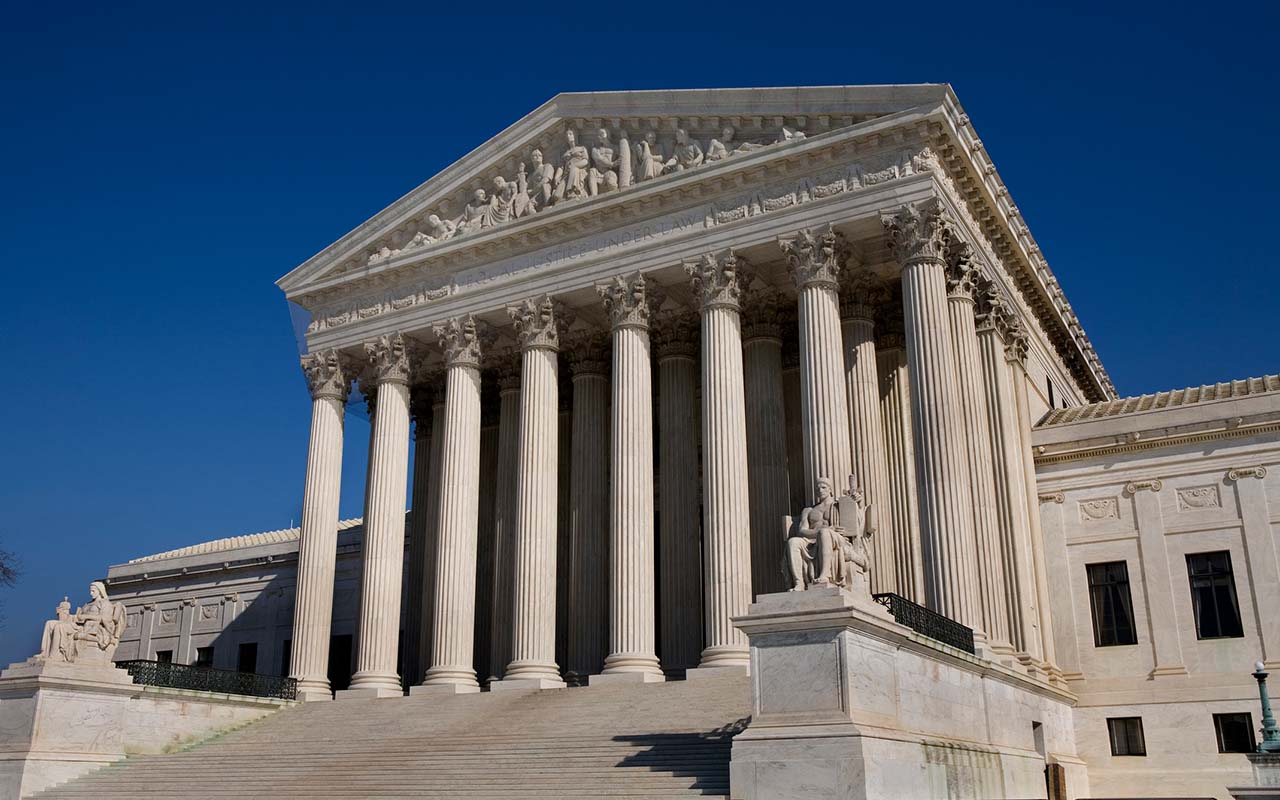
Insights
InsightsSubscribe
Additional Nelson Mullins Alerts

Oct. 3, 2025
The U.S. Supreme Court is (Again) Interested in . . . Tax Sales?
County tax sales of real property are rarely a topic of conversation for the average American homeowner. In the twentieth century, the United States Supreme Court was no different, having only addressed substantive issues involving tax sales a handful of times. But in 2023, the United States Supreme Court issued its landmark decision in Tyler v. Hennepin County, No. 22-166 (May 25, 2023), which has brought the government process for tax lien foreclosures to the forefront of many conversations.[1]
The High Court will now likely push those conversations a step farther, having agreed today to hear Pung v. Isabella County, Michigan, No. 25-95, a case involving a tax sale near Mount Pleasant, Michigan. This may impact the way in which surplus proceeds generated by tax sales are handled and the way in which damages in takings claims are calculated.[2]
Overview of Tyler v. Hennepin County
In 2023, the United States Supreme Court ruled in Tyler that the forfeiture of a Minnesota property for nonpayment of taxes resulted in a governmental taking without just compensation because the forced collection recovered more than what was owed to the government—to Caesar. The Supreme Court did not address the question of what amount of just compensation had to be paid in that case, or who had to pay that just compensation because the only party involved in the unconstitutional taking was the county government. The Court also left for another day the question of whether the Minnesota tax sale imposed an excessive fine on the taxpayer given that the disposition of the Takings claim was dispositive.
Background: The Tax Sale and Questions of Valuation
Timothy Pung bought his Michigan home for $125,000 in 1991. After his death, a dispute arose over whether his property qualified for Michigan’s “Principal Residence Exemption.” Due to an alleged misapplication of the exemption, Isabella County asserted a tax delinquency of just over $2,200—an amount that was later found never to have been owed. Nevertheless, the County foreclosed on the property.
At auction, the property sold for $76,008, although it had an assessed value of $194,400. Shortly after the tax sale, the buyer re-sold the property for nearly that amount. The County retained the entire $76,008, leaving the Pung estate uncompensated for roughly $118,000 in equity.
The Pung Estate sued, asserting both a Fifth Amendment takings claim and an Eighth Amendment excessive fines claim. The district court found a taking but limited damages to the “surplus proceeds,” which amounted to a little over $73,000 (after taxes). The Sixth Circuit affirmed, holding that owners are entitled only to surplus proceeds and rejecting the Eighth Amendment claim.
The Supreme Court granted certiorari to resolve two questions:
-
Whether the Takings Clause requires compensation based on fair market value of the seized property, rather than merely the surplus from a forced auction sale.
-
Whether the forfeiture of substantial home equity in this context constitutes an “excessive fine” under the Eighth Amendment.
Fifth Amendment Claim
Expanding on Tyler, the Pung Estate urged the Supreme Court to decide whether damages in takings cases should be limited to surplus proceeds or should extend to the fair market value of the equity lost. Just compensation must reflect the homeowner’s full equity interest, the Estate claims, not simply the difference in the taxes owed and the auction price. The Estate claims that the auction price is a depressed price due to the distressed nature of the tax sale.
In opposition, the governmental defendants rely on the Supreme Court’s prior opinion in BFP v. Resolution Trust Corp. and Michigan precedent. They argue that what a bidder is willing to pay at an open auction, regardless of its involuntary nature, is the most reliable measure of value. Were the Supreme Court to require that courts later look to the actual fair market value, the County insists that doing so would make tax foreclosure economically unworkable and undermine the stability of titles acquired through tax deeds.
The resolution of this dispute could touch on issues raised by Justice Sotomayor at the oral argument in Tyler and left open by other courts wrestling with the Tyler decision.[3] The Court may decide here whether courts calculate damages narrowly (surplus proceeds) or broadly (fair market value minus debt), with significant consequences for future takings claims.
Excessive Fines Claim
Although the Court in Tyler decided the case under the Fifth Amendment, Justices Gorsuch and Jackson emphasized that forfeiture of excess value could also be punitive, and thus subject to Eighth Amendment scrutiny. They cautioned that lower courts had too quickly dismissed excessive fines claims in this context, though they agreed the issue need not be resolved in Tyler because the Fifth Amendment claim was dispositive.
In Pung, the Estate presses the excessive-fines argument, and the Court has agreed to entertain the question. Losing more than $118,000 in equity for a disputed $2,200 tax debt, the Estate argues, is “grossly disproportionate” to the offense, meeting the test for an excessive fine under United States v. Bajakajian and Timbs v. Indiana. Moreover, the Estate argues that tax foreclosure operates as an in-rem forfeiture designed not only to collect revenue but also to deter nonpayment—squarely within the historical reach of the Excessive Fines Clause.
The governmental defendants oppose this argument by classifying tax foreclosures as remedial, not punitive. They rely on cases like Ingraham v. Wright and Michigan Supreme Court precedent. They also distinguish cases involving drug forfeitures and criminal forfeitures (such as Timbs) on the ground that those involved punishment for crimes, not collection of a civil obligation (taxes).
Conclusion
The direction the Supreme Court takes on these two issues could impact the tax lien industry in a variety of ways, chief among them being further scrutiny of the tax sale processes across the country. The Court’s willingness to address the Eighth Amendment issue again could give taxpayers yet another path to challenge tax sales, while a ruling on the Fifth Amendment claim could expose tax sale bidders to additional liability over and above what they paid for the property at tax sale. In either event, the industry could see another wave of litigation testing the proportionality between tax debts and equity losses, or the second-guessing of the bidding market by the courts.
Who to Contact?
Matt Abee, Randy Saunders, Carl Fumarola, and Jonah Samples with the Nelson Mullins Tax Lien Resolution and Litigation Team are available to answer questions about how Tyler v. Hennepin County or Pung v. Isabella County, Michigan may impact tax sale investors, servicers, and others in the industry. Please reach out to Nelson Mullins for more information about how you may be able to seek to address claims for just compensation or excessive fines as a part of your investment in tax liens.
These materials have been prepared for informational purposes only and are not legal advice. This information is not intended to create, and receipt of it does not constitute, an attorney-client relationship. As portions of this alert may have been created with the benefit of artificial intelligence or large-language models, Internet subscribers and online readers should not act upon this information without seeking professional counsel.
[1] See our related client alert about the Supreme Court’s opinion in Tyler here, along with our other client alerts discussing how state courts and legislatures are reacting to the opinion in Nebraska, West Virginia, and elsewhere.
These materials have been prepared for informational purposes only and are not legal advice. This information is not intended to create, and receipt of it does not constitute, an attorney-client relationship. Internet subscribers and online readers should not act upon this information without seeking professional counsel.

